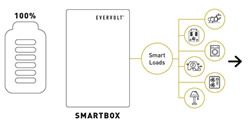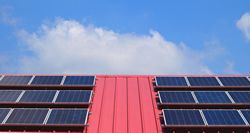Common Misconceptions about Integrating a Battery with a Solar System
Panasonic developed the SmartBox to offer homeowners the ability to control their solar systems to run how best suits their needs. For example, with Smart Load Control homeowners can prioritize and schedule select appliances and their energy usage.
2022 Top Article - Latest Advancements in Solar Technology for Residential Applications
Due to the vast applications for solar technology in modern day residences, certain advancements in solar energy systems have different benefits as households vary.
What's the Future of IoT-Powered Solar Smart Homes?
Alternative energy sources like solar are gaining traction in both the public and private sectors, and understanding how solar will improve IoT-connected homes will help to boost their popularity and availability further going forward.
California startup HahaSmart aims to become low-cost disruptor in solar
The first solar O-2-O platform (hahasmart.com) enables lower solar costs for homeowners and more business for small solar contractors
Why You Should Start Investing in Solar
A solar-powered home reduces carbon emissions by 3-4 tons annually, equivalent to planting 100 trees every year).
Residential-scale power generation
Residential-sited fuel cells are now becoming an option for consumers, with growing interest and big sales being made primarily outside of the United States.
Fuel Cells Find a Green Home in New Haven
The greenest apartment building ever constructed officially opened to its residents on August 1, 2010. Located in downtown New Haven, Connecticut, 360 State Street elevates green living from a guilt-trip to recycle and compost to an attractive and hassle-free lifestyle.
Electricity With My Hot Water?
Imagine a furnace that makes electricity. That is one future for the home - a future that is being aggressively pursued by various boiler companies across Europe.
Records 1 to 8 of 8
Featured Product

Nature's Generator MyGrid 10K
A 10,000W plug & play whole-home generator with a 10kWh LiFePO4 battery for reliable backup power. Features easy setup, flexible 120V/208-240V input, and solar/wind charging. Expandable with extra batteries or solar panels, and can pair two units for 20,000W for even larger energy needs. Powers your home during power outages, reduces electricity costs, and supports sustainable energy.


.jpg)


.png)
